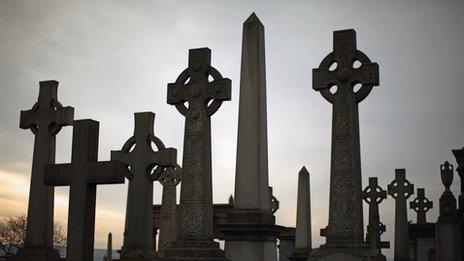HS2 plans risk 'indecent' treatment of graves - Church
- Published
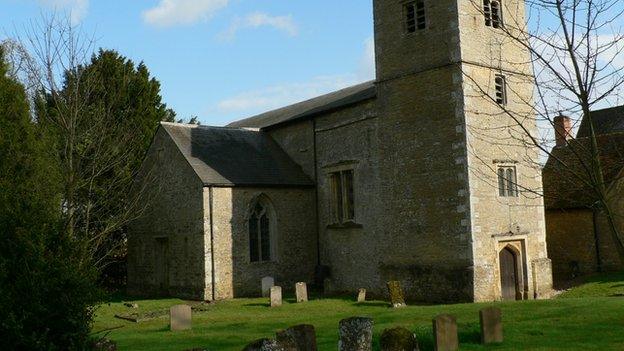
There are fears for HS2's impact on Chetwode's "very fine but vulnerable" church
The Church of England has asked for bishops to be given powers to oversee the removal and reburial of bodies in graves along the planned HS2 rail line.
More than 30,000 graves must be exhumed to make way for the high-speed route.
Church officials say the Bill, external paving the way for the line does not provide for those remains to be treated in a "decent and reverent" way - and the Bill should not pass without changes.
But the Department for Transport said the remains would be treated with care.
The Archbishops' Council made its criticisms in a petition to Parliament against the High Speed 2 (London-West Midlands) Bill, external, which grants the powers required to construct and operate phase one of HS2, between London and the West Midlands.
The petition attacks the bill for failing to "strike a proportionate balance between the rights of the Church of England to manifest its religion... and the general needs of the community that are to be met by the works" on HS2.
The petition says that by law, human remains interred in consecrated land are under the protection of the Church.
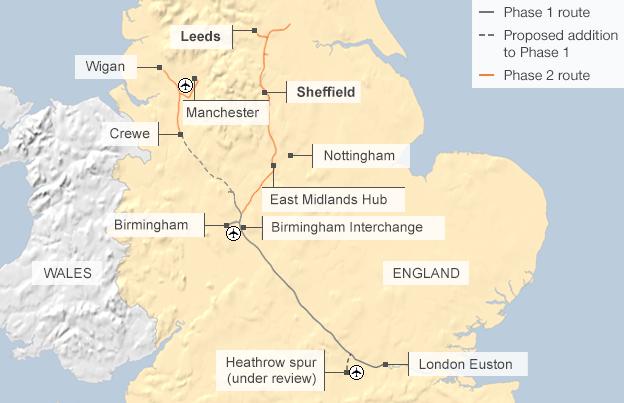
The Bill overrides that protection, it says, so other ecclesiastical safeguards should be provided for in its place.
"It is accordingly submitted that the absence of any such provision from the Bill is contrary to general legal principle."
The graves which will have to exhumed to make way for the project are in burial grounds near Euston station, in Stoke Mandeville in Buckinghamshire, and at Park Street in Birmingham.
The Church's director of communications, Arun Arora, said: "The Church of England isn't against HS2 in itself.
"But for the Church to support the current route, bishops would need to be given the authority to oversee the exhumation of human remains and their reburial in consecrated ground."
Church officials told the BBC they also had broader fears that noise and vibration from the current route of HS2 might intrude on worship at some rural churches close to the track.
One site affected - St Mary's parish church at Chetwode near Stoke Mandeville - dates back to the 13th Century.
The Bishop of Buckingham, the Right Reverend Dr Alan Wilson, told the BBC: "Many people in Bucks have serious concerns about HS2. It is important that the disturbance of human remains is minimised, and dealt with properly.
"I am particularly concerned about the impact of the route on Chetwode church - a very fine but vulnerable early medieval building that requires proper respect and consideration."
'Emotive issue'
A spokesman for The Department for Transport said: "Throughout the development of HS2, burial grounds have been avoided as far as practicable.
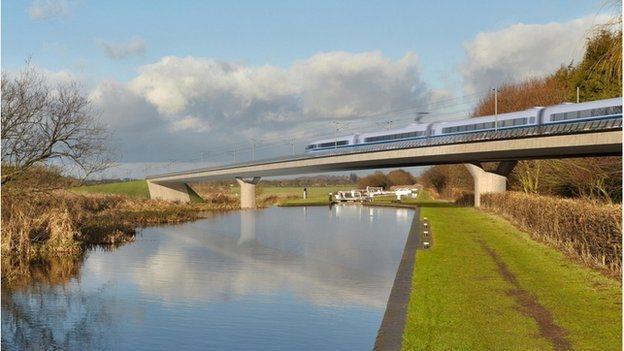
The Church says it is not opposed to HS2 in itself, but wants changes to the Bill behind it
"We understand that the removal of human remains to enable HS2 to progress is a sensitive and emotive issue, which is why this issue is specifically dealt with in the Hybrid Bill and why HS2 Ltd recently published a paper setting out, external how it would deal with affected burial sites along the route.
"Though the affected burial sites at Euston, Stoke Mandeville and Birmingham have not been in use for more than 100 years, HS2 Ltd will ensure that the affected remains are treated with dignity, respect and care."
The department would not say whether the government intended to adopt the Church's suggested changes, but said petitioners' concerns would be examined as the bill was scrutinised in more detail at committee stage.
It said HS2 Ltd had undertaken to co-operate with English Heritage, local authorities, the Church of England, other religious authorities and the Commonwealth War Graves Commission to ensure its work was carried out in an appropriate way.
In April, MPs voted overwhelmingly in favour of allowing the bill to progress despite a sizeable rebellion by backbenchers who wanted to block it.
Because of its complexity, and opposition to it, the bill is not expected to become law until after the 2015 general election. The government proposes to start construction in 2017, with the line between London and Birmingham due to be operational by 2026
A separate bill will be brought in later by the government to allow the the second phase - north of Birmingham - to go ahead, with the aim of that part opening in 2033.
- Published6 October 2023
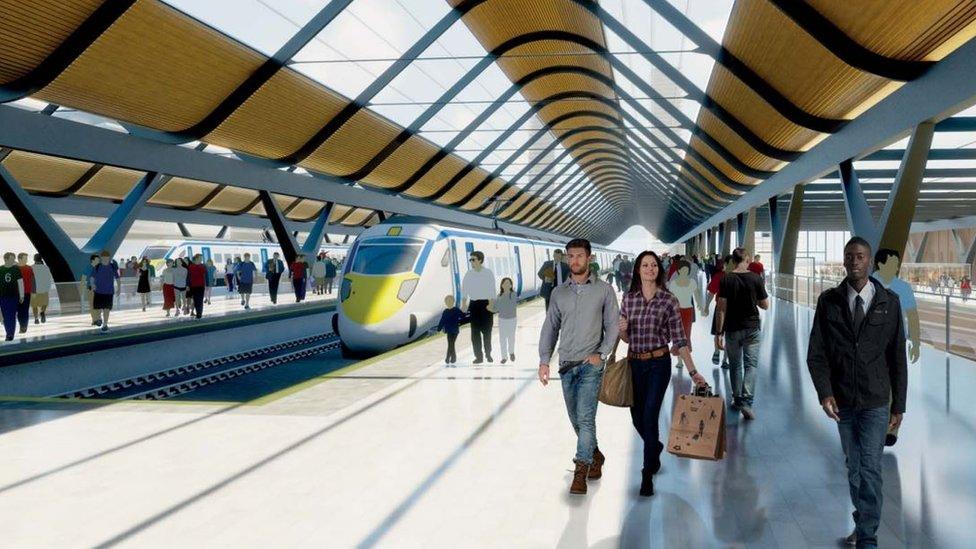
- Published29 April 2014
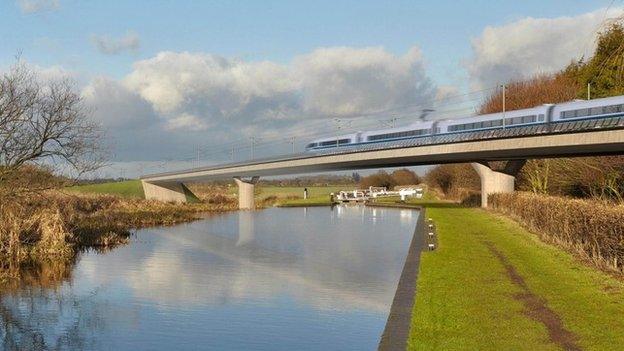
- Published26 June 2012
